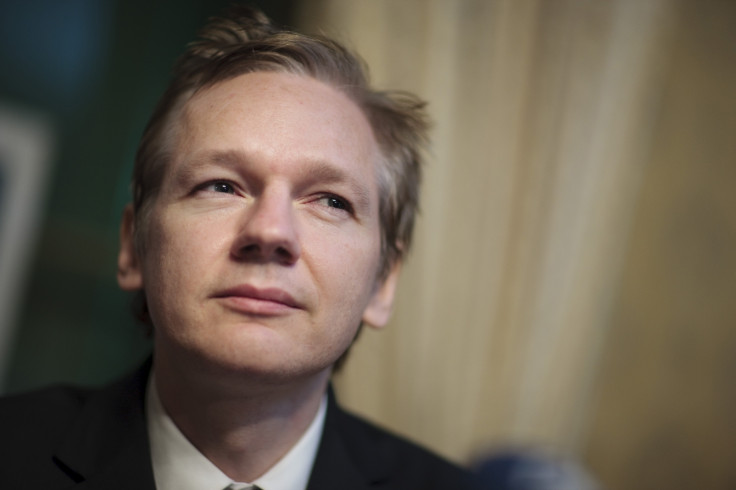'Want my arrest?' Assange taunts Macron after WikiLeaks posts archive of over 21,000 campaign emails
WikiLeaks recently published an archive of over 21,075 "verified" emails linked to Macron's election campaign.

WikiLeaks founder Julian Assange took to Twitter on Wednesday (2 August) to taunt French President Emmanuel Macron just days after releasing a searchable archive of 21,075 "verified" emails linked to his election campaign. The stolen material was initially dumped on the internet by unknown hackers in May, just 48 hours before the run-off between Macron and far-right leader Marine Le Pen.
Following the leak on 5 May, Macron's team said it was targeted by a "massive and coordinated" hacking operation.
On Monday, Macron's party La République En Marche, or Republic on the Move, said the emails — dated between 2009 and April 24, 2017 — that were published by WikiLeaks appeared to be the same as the ones leaked back in May. However, the party also warned that the dump included fake documents mixed with authentic ones.
"Republic on the Move calls for vigilance over these publications," the party said in a statement. "Under the guise of novelty, WikiLeaks is merely taking over the destabilisation operation from May."
It added that it will inform public prosecutors of the new publication and said a complaint has already been filed and is under consideration for "fraudulent access, fraudulent extraction of data, breach of correspondence and identity theft".
In response, Assange tweeted in French on Wednesday: "Macron wants my arrest? Let him assume and say, rather than go through a non-party and his attorneys."
In a separate tweet, he posted a link to a Le Figaro story about En Marche's statement and suggested that Macron's party was undermining the freedom of the press.
"Violation of the separation of powers, attack on freedom of the press: Macron's combo against @WikiLeaks," Assange wrote.
WikiLeaks said over 21,000 emails that were "individually forensically verified by WikiLeaks through its DKIM system" were included in the archive of 71,848 emails, along with 26,506 attachments from more than 4,400 unique senders. The whistle-blowing outfit did not state how the emails were obtained but cited an earlier comment by Guillaume Poupard, head of France's cybersecurity agency, in which he said the data dump appeared to be the work of an "isolated individual".
Macron veut-il mon arrestation? Laissez-le assumer et dire, plutôt que de passer par un non-parti et ses Procureurs. https://t.co/NCiw5Rw8Sn
— Julian Assange 🔹 (@JulianAssange) August 2, 2017
Violation de la séparation des pouvoirs, atteinte à la liberté de la presse: combo de #Macron contre @WikiLeaks https://t.co/eqxVho8prG
— Julian Assange 🔹 (@JulianAssange) August 2, 2017
Following the leak of roughly 9GB of material in May, many compared it to the US presidential election hacks in 2016. US intelligence agencies accused Russia of interfering in the election to help Donald Trump win. However, the Kremlin has vehemently denied the accusations.
WikiLeaks played a significant role during the US presidential election campaign last year when it released thousands of damaging emails stolen from Hillary Clinton's campaign manager John Podesta's account and other Democratic officials.
Macron's campaign has has previously blamed Russian interests for attempting to interfere in the election campaign - allegations that Russia has dismissed as well.
Cybersecurity experts said Macron's campaign was targeted with sophisticated phishing attacks by Russia-linked hacking group APT28, also known as Fancy Bear - the same group linked to the DNC hack.
Assange has been residing at the Ecuadorian embassy in London since 2012 to avoid extradition to Sweden over rape allegations. He also feared that Sweden would extradite him to the US to face charges of espionage over the publication of thousands of highly classified military, political and diplomatic files in a series of leaks.
In May, Sweden dropped its seven-year investigation against the 45-year-old Australian national. However, British law enforcement have warned that he would still be arrested for other charges should he step out of the Ecuadorean embassy.
© Copyright IBTimes 2025. All rights reserved.





















